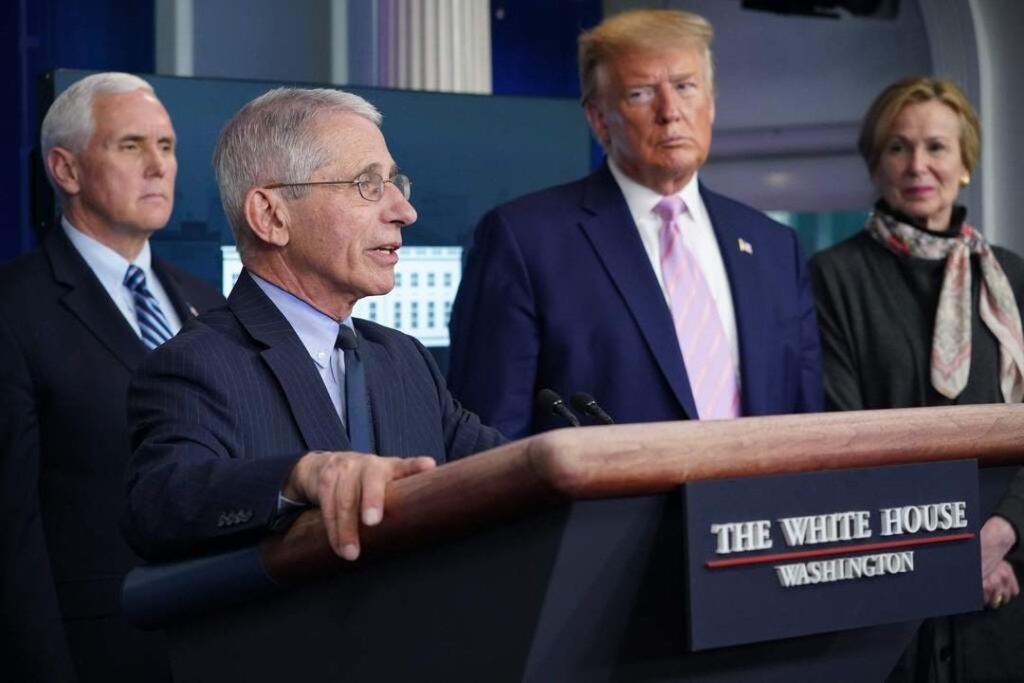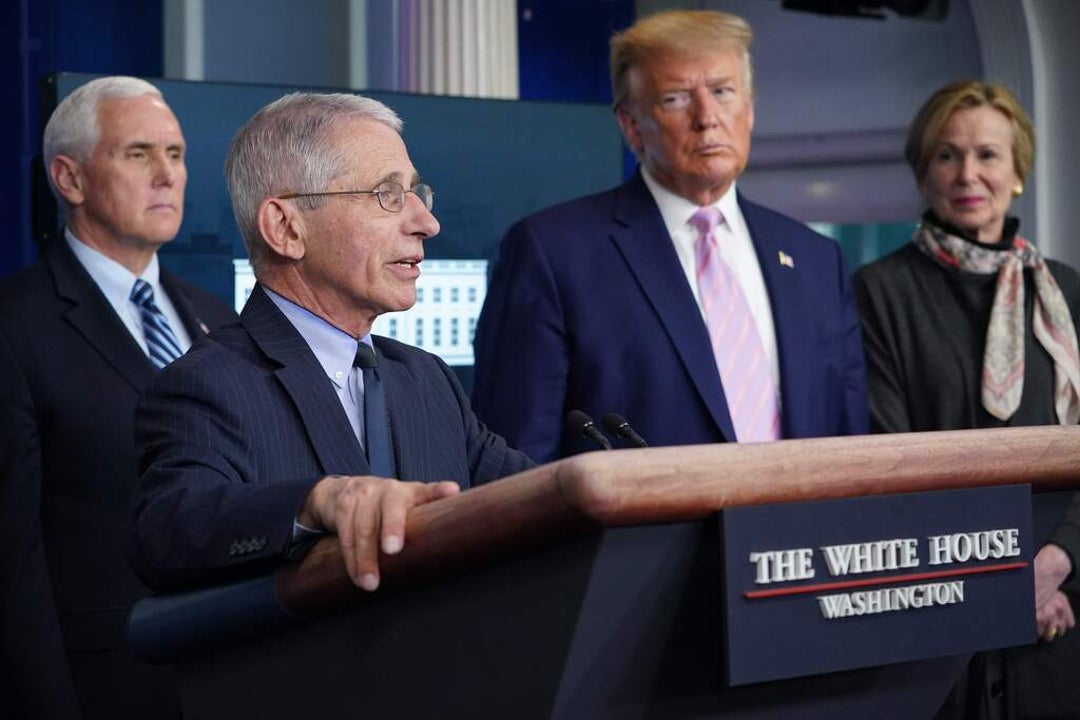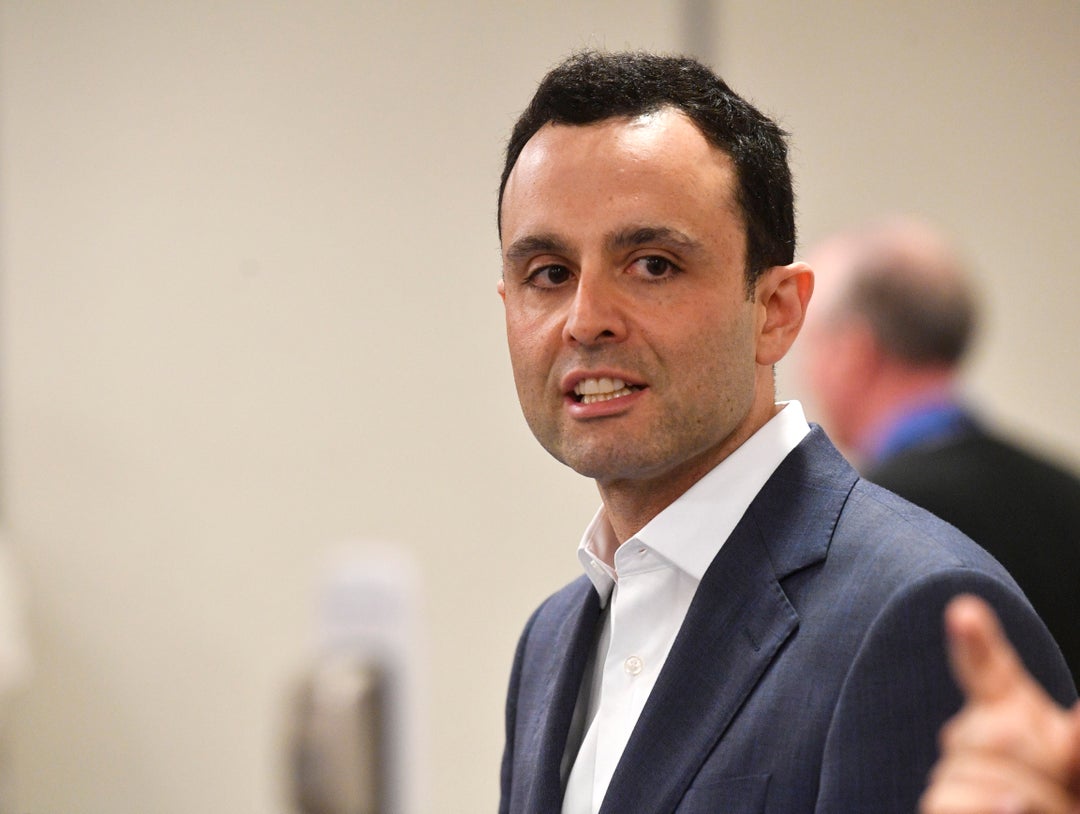White House team recommends tighter COVID-19 restrictions for Tennessee, ‘red zones’ like Nashville – Tennessean

The White House coronavirus task force is recommending Tennessee and local “red zones” like Nashville, where virus cases are surging, to implement stricter restrictions such as mask mandates and closing businesses.
Federal recommendations for 18 states were originally published Tuesday by the Center for Public Integrity, a nonprofit newsroom based in Washington, D.C.
In the report, federal officials recommend that Tennessee require face masks in public where cases are on the rise. It also recommended that it close bars and gyms in hot spot counties and limit indoor dining at restaurants to 25% capacity.

Other recommendations include:
- Instituting routine weekly testing of all workers in assisted living and long-term care facilities and requiring visitors to wear masks and socially distance.
- Recommending anyone with underlying health conditions and at high risk to shelter in place.
- Increasing community level testing and recruiting more contact tracers.
- Implementing “pooling” testing by screening entire households and placing all specimens in one tube with rapid turnaround results. Isolate and conduct follow-up individual tests.
- Adding extra and weekend testing shifts to decrease testing turnaround times.
The report places Davidson, Rutherford, Sumner, Bradley, Seiver, Hamblen, Macon, Robertson, Bedford, Dyer, Lauderdale and Smith counties as “red zones” in Tennessee, where cases have risen in the past week.
These counties are largely given the recommendations included above, with focus on testing. It calls for doing surge testing and contract tracing in neighborhoods and zip codes with the highest case rates, and diagnostic pooling, where labs pool of samples to increase testing access and reduce turnaround times to under 12 hours.
The report also tells counties to recruit more contact tracers so contact with positive patients and testing for individuals in positive households are done within 24 hours.
Gillium Ferguson, as spokesperson for Gov. Bill Lee said Tennessee’s Unified Command Group is in close contact with White House officials, and share regular updates, best practices and challenges the state faces in responding to the ongoing pandemic.
“Many of the suggestions listed are already in place in certain counties in Tennessee, and we are working with local governments on the best way to address the pandemic in their unique communities,” Ferguson told The Tennessean Thursday.
Lee doubled-down this week on leaving mask use to the public and mandates by localities. He also said closing down the economy again was not an option on the table as cases continue to surge in the state.
Tennessee recorded 2,479 news infections Thursday, bringing the total number of active cases across the state to at least 29,494. Altogether 796 people have died, with 13 new deaths in 24 hours.
The crisis deepened this week after record-breaking numbers of single-day highs of new infections for the state and in Nashville. Local health officials reported 322 new confirmed COVID-19 cases Thursday in Nashville. There has been an average 18% positivity rate among the tests done in the city in the past week.
“These recommendations for states validate Nashville’s decisions to mandate masks, lower gathering sizes, close bars, decrease restaurant capacity and encourage attendees of large events to get tested,” said Chris Song, a spokesperson for Mayor John Cooper.
Metro will continue to consider the remaining recommendations as officials continue to push for a coordinated response “rather than an ‘every county for itself’ approach,” he said.
Related: Nashville police begin enforcing city’s mandatory mask requirement on Lower Broadway
Nashville officials were forceful this week in calling for the state and federal government to step up in their pandemic response. Without a coordinated plan, they said, the ability of Nashville and other localities to stop the spread of COVID-19 will be hindered.
Earlier this week, Dr. Alex Jahangir, the head of Nashville’s coronavirus task force, said the city will remain in its current modified phase 2 for the “foreseeable future,” while Cooper said numbers dictate that the city is not ready to loosen restrictions.
The city ordered bars to close on July 3 to curb the spread of the virus. Closures are extended until at least July 31.
Restaurants and gyms are operating at 50% of their normal capacity — above the new federal recommendations that call for indoor dining to be reduced and gyms to close completely. Gatherings in Nashville are currently capped at 25 people.
Jahangir said this week the city’s approach to future rollbacks would include specifically “strategic” decisions that address a specific cause of increasing cases based on contact tracing investigations. Targeting areas of spikes or clusters, he said, would minimize impact to the economy.
While the new recommendations outline tighter restrictions for the state and localities, federal officials have sent mixed messages as they’ve shifted responsibilities to local officials and in recent weeks. They have also downplayed the severity of the surges across the country.

In a recent interview with The New York Times, Jahangir said he’s tired of being “politically correct,” and criticized the lack of national leadership as pressure mounts to reopen the economy.
President Donald Trump has a record of dismissing science in his response to the pandemic, characterizing the virus, at times, as a “hoax” and minimizing the need for face coverings.
When it comes to schools, Trump, along with U.S. Secretary of Education Betsy DeVos and Vice President Mike Pence, have increased pressure on local leaders to reopen schools.
Trump put the nation’s schools on notice last week, saying he may cut their federal funding if they don’t reopen their classrooms this fall. On Thursday, White House press secretary Kayleigh McEnany doubled down on the president’s stance that schools must have students back in classrooms, saying, “The science should not stand in the way of this.”
She then clarified and said “science is on our side here,” citing one study that said the risk of critical illness is less than the seasonal flu in children.
But Nashville schools and public health officials say it’s too soon to start the school year with in-person classes. They argue it would pose health and safety risks for teachers, staff, and students and their families, as transmission rates of the virus remain high in the region.
More: ‘Insane and irresponsible’: Tennessee doctors, teachers question reopening schools amid worsening coronavirus crisis
The new school year, which begins Aug. 3, will start remotely until after Labor Day.
Yihyun Jeong covers politics in Nashville for USA TODAY NETWORK – TENNESSEE. Reach her at yjeong@tennessean.com and follow her on Twitter @yihyun_jeong.
Published 12:24 PM EDT Jul 17, 2020
